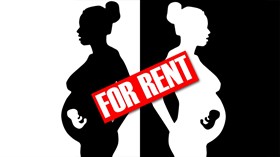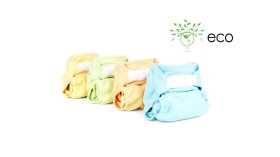
Source: Composite image by G_marius based on an Ozgur Poyrazoglu's image.
Top 10 pros and cons of breastfeeding. What's best for your baby? Is breastfeeding better than formula? And what are the advantages and disadvantages of bottle feeding?
Breastfeeding recommendation
The World Health Organisation (WHO) recommends that babies up to 6 months of age be exclusively breastfed, and that breastfeeding, along with appropriate complementary foods, should continue up to 2 years of age or beyond. The pressures of modern lifestyles, however, make it difficult for some mothers to follow this recommendation. Moreover, formula milk arguably provides many of the advantages of breast milk. Breastfeeding is one of the first big choices parents face and it may impact both positively and negatively childrens' development and family life. Breastfeeding is also one of the most controversial issues in parenting debates. This is a list of the most commonly argued pros and cons of breastfeeding:
Top 10 pros and cons of breastfeeding
Breastfeeding has several advantages for the baby and the family:
- Breast milk is free whereas formula milk can be expensive.
- Breasfeeding can be very convenient. Mothers do not need to carry food equipment around and breast milk is available wherever the mother is. Breast milk is also at the right temperature for the baby, so there's no need to heat it.
- Working mothers can also express their milk, so that someone else may feed the baby with a bottle.
- Breast milk contains the right proportion of nutrients that babies need, including carbohydrates, protein, calcium and fat. Some of the fatty acids in breast milk promote brain development.
- Breast milk is normally better digested than formula milk.
- It contributes to building an emotional bond between the mother and the baby.
- Breastfeeding strengthens babies' immune systems and helps protect babies from infections and diseases. Breastfed babies are, according to the British National Health Service (NHS), less prone to suffer from diarrhoea, constipation, ear infections, and later in life develop type-2 diabetes.
- According to the American Academy of Pediatrics, breastfeeding helps prevent the sudden infant death syndrome (SIDS).
- Breastfeeding helps moms lose weight and often gives them a great sense of achievement.
- Breastfeeding may also reduce the risk of breast cancer, heart disease, ovarian cancer and osteoporosis in mothers.
However, several disadvantages or limitations of breastfeeding are also commonly suggested. Formula feeding also has some pros:
- After maternity leave, working mothers find breastfeeding difficult and using pumps to express their milk.
- Breastfeeding mothers cannot drink alcohol. Formula feeding allows them to enjoy wine, beer or cocktails as before their pregnancy.
- Moms who breastfeed may need to avoid certain foods that their babies cannot tolerate. Mothers of formula-fed babies do not need to worry about this.
- Breastfeeding is not recommended when mothers take some medications or suffer from some diseases.
- Formula milk composition has improved and now offers many beneficial components.
- Bottle feeding allows a bigger role for the father in baby care.
- In some cases babies and or mothers have problems with breastfeeding. Some babies struggle getting a good latch and mothers may feel frustrated when they do not succeed to feed their babies with their milk.
- With bottle feedings scheduling feeding is easier and parents have the capacity to control better the quantity the baby drinks. Usually bottle fed babies sleep through the night if they have drunk the right amount. Breastfed children tend to demand breast milk several times during the night.
- Some experts argue that the benefits of breastfeeding are modest and often overstated and that they do not always compensate the inconveniences that breastfeeding represent for some families.
- Some mothers feel that breastfeeding advocates are going too far and contributing to create a sense of guilt to those who cannot or choose not to breastfeed.
What is your experience feeding babies? What would you recommend other families to do? Is breastfeeding advocacy going to far or, on the contrary, are they doing an excellent job in raising awareness of a natural practice with great benefits? Vote in our poll and join the discussion.
Check out this impressive video of a newborn being breastfed for the first time and video explaining the advantages and disadvantages of breastfeeding and formula feeding.
If you are interested in the subject of maternity do not miss our debates on the pros and cons of home brith and on breastfeeding in public.
If you change your mind, you can change your vote simply by clicking on another option.
New to netivist?
Join with confidence, netivist is completely advertisement free. You will not receive any promotional materials from third parties.
Join the debate
In order to join the debate you must be logged in.
Already have an account on netivist? Just login. New to netivist? Create your account for free.
You are viewing a filtered list of comments. Click the button above to view all comments.
No argument with the scientific evidence, of course. I can also see the benefits of a health campaign on breastfeeding. What I disagree with is this normative discourse, which does’t take into account the medical, psychological and socioeconomic situation of individual mothers. There are women that cannot breastfeed because of a number of reasons and they have enough on their plate to be guilt-tripped by the NHS or other women - judging from the number of women I know I don’t think they are so uncommon. They are the ones suffering at that point, not the babies.So my answer would be that no, babies should be breastfed for as long as a mother can and wants, less or more, given tha she has all the information and support provided.
Of course it is not an obligation for the mother. You are absolutely right, Maria. But what I like about the question in this debate is that is not asking: "must a mother breastfeed" but "should babies" be breastfed. And babies should be breastfed as much as possible. It's in their nature to want to nurse and it is the best available nourishment and completely free . I think we sometimes things these things from the mother perspective, which is important of course, but as adults we do not empathise so much with babies or children and understand what their needs are. A lot of persons who have not been breastfed turn out ok, and a lot of breastfed persons turn out not ok. What's important it's what the scientific evidence shows: breastfed babies tend to have less infections and diseases, better bonding with their mothers, etc. Plus there are health benefits for the mother too. Lower risk of developing breast and ovarian cancer, for example. I don't want to monopolise the debate, but if anyone is interesting on the topic I recommend this website: http://kellymom.com/. It helped me resolve any issues while breastfeeding my two children.
Join the debate
In order to join the debate you must be logged in.
Already have an account on netivist? Just login. New to netivist? Create your account for free.


















